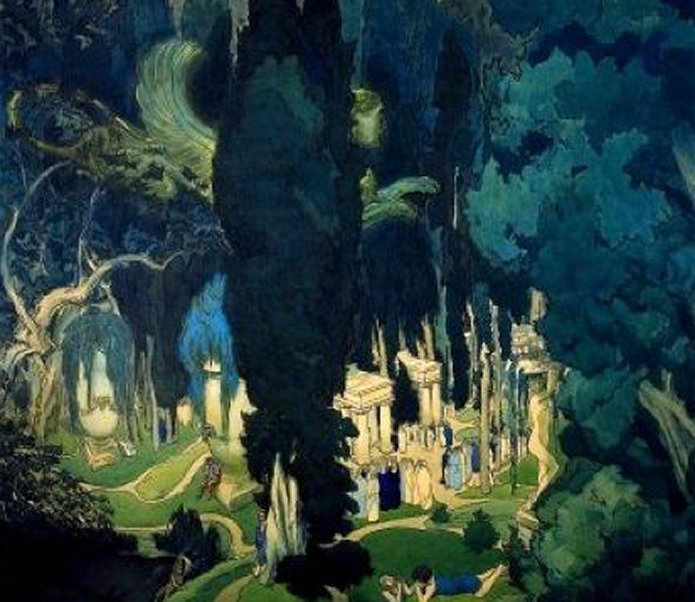A. Sutherland – AncientPages.com – The Elysian Fields were a prominent place where the deceased could enjoy an idyllic existence in a land of plenty.
If someone was once a brave hero or a good ruler, relative to the gods, or another virtuous person, the judges sent him or her to the Elysian Fields (Elysium), described as a vast land of abundance, peace, happiness, eternal spring, and flourishing gardens.

“Elysium” by Léon Bakst (1866-1924) from 1906. Public Domain
It was believed to be located at a mysterious distant place somewhere at the end of the earth.
According to some versions, the ruler of this magnificent realm was Kronos, son of Gaia (Mother Earth) and Uranus Lord of Heaven), and at the same time father of Demeter, the goddess of harvest and agriculture, and many other deities like Hestia, Hera, Hades, Poseidon, and Zeus.
The ancient Greeks imagined life after death as less appealing than on Earth. At first, the souls of the deceased (both good and evil) were faced with crossing the river Styx (hate), the principal river in the underworld, which formed the border between the upper, and lower worlds.
The souls were carried on a boat by Charon, the Ferryman, and a psychopomp of Hades, and he charged a fee – a coin of 1 obole for his service. According to tradition, the family used to place the coin in the mouth of the deceased.
Charon delivered the deceased for judgment in front of three judges. There, the soul was tried and finally went to one of the three eternal rest places, among others in the abode of the blessed – Elysium. The Righteous ones were heading to the right of the Forgotten River – Lethe (oblivion).






